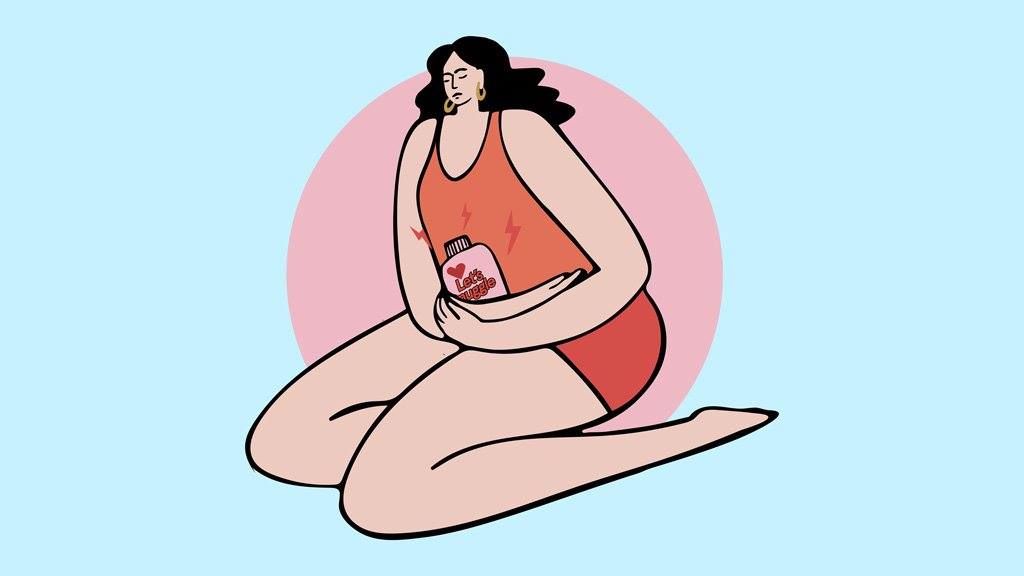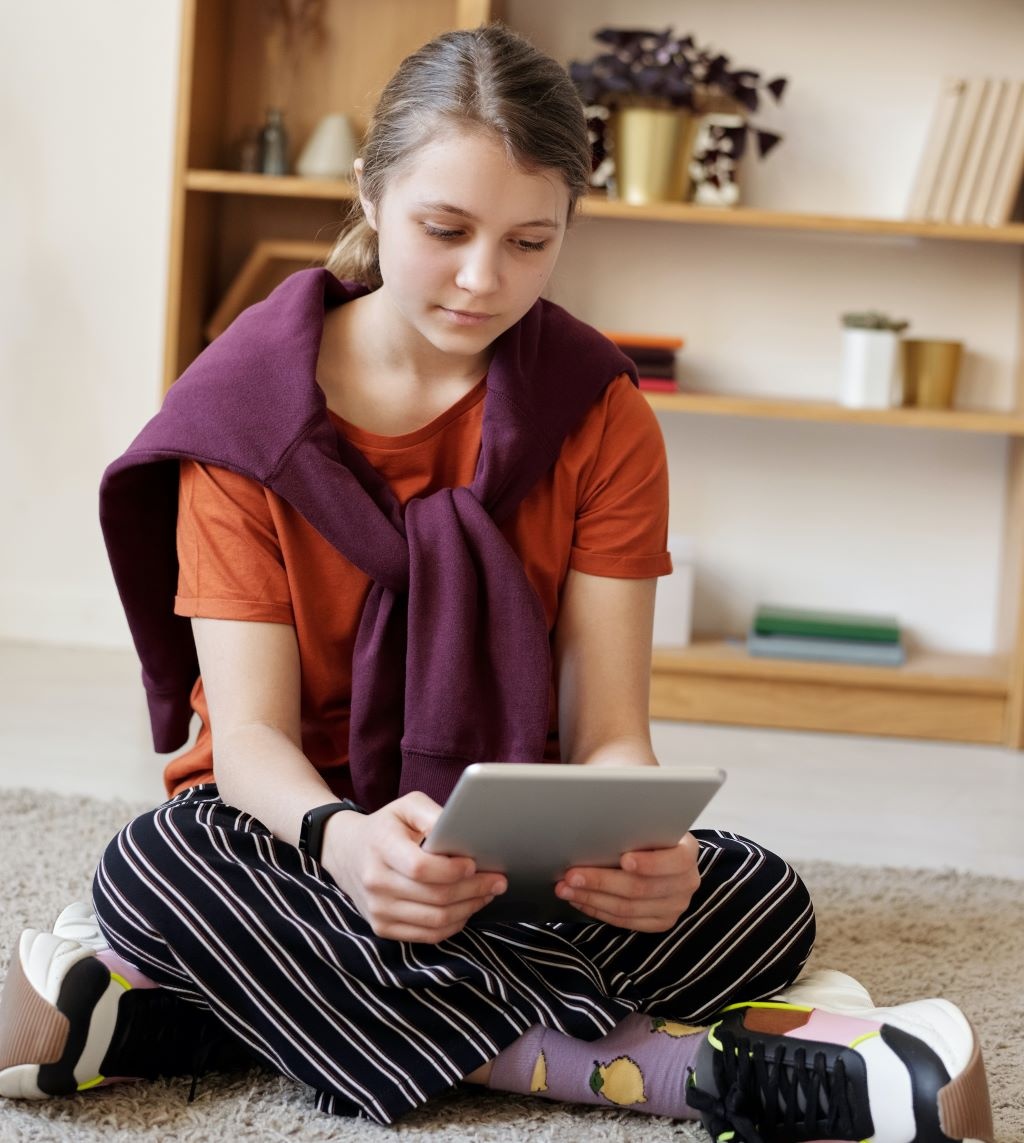
Premenstrual Syndrome, the notorious and misunderstood phrase that has been denouncing women through the years as hysterical. The phrase that many use to invalidate the very real pain and discomfort that several women must endure pre, during and post menstruation.
PMS stands for Premenstrual Syndrome and it is essentially a mixture of symptoms that an overwhelming amount of women experience around a week (or two) before their periods, such symptoms may include: fatigue, depression, mood swings, tender breasts, irritability and food cravings.
The list of symptoms is vast and the intensity varies, but it remains common – it effects three in every four menstruating women (according to WomensHealth.gov).
I myself suffer from PMS and used to have quite an irregular cycle. So, for a long time my experiences with the symptoms used to be quite unpredictable, and in turn I could never really pin point what was going on.
I consider myself to be quite in tune with my emotions and I’ve always been able to function properly regardless of how I’m feeling. But through time, I’ve realised that PMS has had a subtle, yet important, effect on my emotional state and consequently, my general motivation. To put it simply, at times it’s made me feel hopeless. There have been moments in which I’ve woken up wishing I didn’t.
Through my experience, it comes in a sort of wave of inexplicable sadness. And this sort of confusion regarding why I’d be feeling the way I would comes with a whole lot of frustration – at everyone and myself. Though, like I said before, it varies from month to month and I also experience other physical symptoms like stomach cramps and headaches. This may not universally apply but I’ve mentioned it because I want people, especially young women, to possibly relate to my experiences and recognise that this is normal.
I have further found allowing myself time to take a break, and in a sense ‘give in to my emotions’ to be really helpful. For instance recently, around a week before my period I was feeling down about something, so I decided to go for a walk. I started this walk practically running out of anger and I eventually stopped three times to cry.
For me although I was upset, releasing my emotions was virtually therapeutic. Hence, I suggest walking (or any form of exercise) as a means to maybe alleviate some Premenstrual Syndrome symptoms.
In fact, there’s a study that shows that women who did an hour worth of aerobic exercise three times a week for eight weeks felt improvements mentally, physically and emotionally. Aerobic exercise releases endorphins which are chemicals in the brain that can ease some pain caused by hormones released during PMS. It is recommended that this exercise should be continued throughout the whole month and if you’re not feeling up to it, allow your body to rest and go for a brisk walk instead.
When experiencing intense body aches, headaches and/or cramps I usually have to take over-the-counter painkillers like Ibuprofen. Despite the fact that PMS is so common, there’s still this alarming stigma surrounding it.
For centuries men have tried to silence women and label us as overdramatic, and for years women have apologised for being ‘emotional’, ‘bossy’ or ‘unreasonable.’ Men have used the female menstrual cycle as something to blame or ridicule. I think it’s safe to say that they are mistaken.
Although many suffer from PMS every month (i.e. from physical and mental pain) we still show up, do our jobs and kick ass. It should go without saying that all women everywhere should never be ashamed for having Premenstrual Syndrome, these hormones are a part of our nature and they constantly make us prove a female resilience that no man could ever possess (by this I’m not indicating that there is a stronger sex, I’m merely trying to illustrate the certain strength that females have that is brought about by the stress of menstruation that of course males cannot experience, and thus, women should feel empowered).
What I love to see is the men that acknowledge this, those noticing and appreciating the magic happening within us. Keep doing that, boys. That being said, this stigma is not inevitable. Education is such a powerful tool especially when it comes to understanding our bodies and the bodies of those around us.
I was never taught what Premenstrual Syndrome was until I researched it myself. As a matter of fact, I remember being told that it stood for Period Mood Swings (reducing a whole syndrome to a single symptom – again proving this incessant need for society to portray women as emotionally unstable).
I really believe that we must teach our children about these physical and psychological changes, so that they know that no two experiences are the same, that they are not abnormal for feeling what they feel, that it’s ok to give their minds and bodies a break, and for them to truly appreciate the intricacy and significance of a woman’s menstrual system. Such education is also integral for males because once someone understands what someone else is going through, they become more capable of respecting it.
My final message is to all women. We must never apologise for who we are or who PMS may make us seem like, our feelings are justified even if we don’t always understand them. And finally, we need to learn to look at our body as the incredible thing it is and treat it as such.
Have you experienced PMS? If you’d like to share your experience with us please contact us or send us an email at [email protected]

Ana Tortell is a 19 year old woman who’s currently studying International Relations and Philosophy in the University of Malta. Besides this, she is a dancer and has been dancing since the age of 3 and has performed all over Europe. She is very interested in and passionate about human rights. She is strongly against all forms of discrimination and through this she will try her best to vocalise her opinions in an impactful way.





